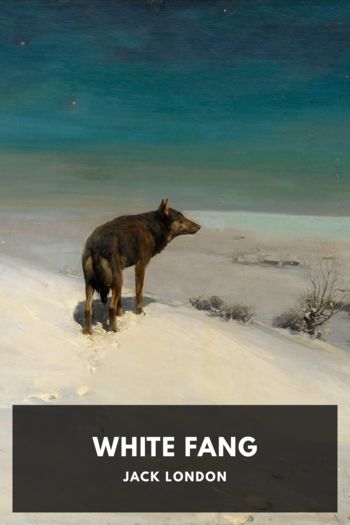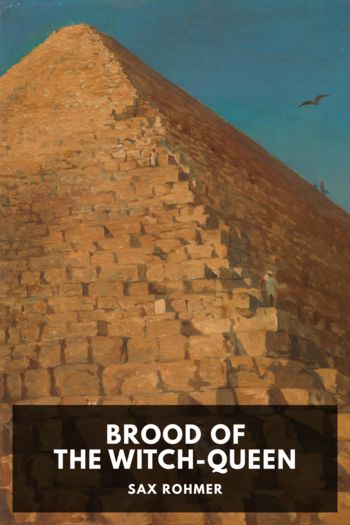Short Fiction - Robert E. Howard (the reading list TXT) 📗

- Author: Robert E. Howard
Book online «Short Fiction - Robert E. Howard (the reading list TXT) 📗». Author Robert E. Howard
“It was in the forest that the dragons fell upon them, and tore many to pieces; so the people fled in a frenzy of fear before them, and at last came into the plain and saw the city of Xuchotl in the midst of it.
“They camped before the city, not daring to leave the plain, for the night was made hideous with the noise of the battling monsters throughout the forest. They made war incessantly upon one another. Yet they came not into the plain.
“The people of the city shut their gates and shot arrows at our people from the walls. The Tlazitlans were imprisoned on the plain, as if the ring of the forest had been a great wall; for to venture into the woods would have been madness.
“That night there came secretly to their camp a slave from the city, one of their own blood, who with a band of exploring soldiers had wandered into the forest long before, when he was a young man. The dragons had devoured all his companions, but he had been taken into the city to dwell in servitude. His name was Tolkemec.” A flame lighted the dark eyes at mention of the name, and some of the people muttered obscenely and spat. “He promised to open the gates to the warriors. He asked only that all captives taken be delivered into his hands.
“At dawn he opened the gates. The warriors swarmed in and the halls of Xuchotl ran red. Only a few hundred folk dwelt there, decaying remnants of a once great race. Tolkemec said they came from the east, long ago, from Old Kosala, when the ancestors of those who now dwell in Kosala came up from the south and drove forth the original inhabitants of the land. They wandered far westward and finally found this forest-girdled plain, inhabited then by a tribe of black people.
“These they enslaved and set to building a city. From the hills to the east they brought jade and marble and lapis lazuli, and gold, silver and copper. Herds of elephants provided them with ivory. When their city was completed, they slew all the black slaves. And their magicians made a terrible magic to guard the city; for by their necromantic arts they recreated the dragons which had once dwelt in this lost land, and whose monstrous bones they found in the forest. Those bones they clothed in flesh and life, and the living beasts walked the earth as they walked it when Time was young. But the wizards wove a spell that kept them in the forest and they came not into the plain.
“So for many centuries the people of Xuchotl dwelt in their city, cultivating the fertile plain, until their wise men learned how to grow fruit within the city—fruit which is not planted in soil, but obtains its nourishment out of the air—and then they let the irrigation ditches run dry, and dwelt more and more in luxurious sloth, until decay seized them. They were a dying race when our ancestors broke through the forest and came into the plain. Their wizards had died, and the people had forgot their ancient necromancy. They could fight neither by sorcery nor the sword.
“Well, our fathers slew the people of Xuchotl, all except a hundred which were given living into the hands of Tolkemec, who had been their slave; and for many days and nights the halls reechoed to their screams under the agony of his tortures.
“So the Tlazitlans dwelt here, for a while in peace, ruled by the brothers Tecuhltli and Xotalanc, and by Tolkemec. Tolkemec took a girl of the tribe to wife, and because he had opened the gates, and because he knew many of the arts of the Xuchotlans, he shared the rule of the tribe with the brothers who had led the rebellion and the flight.
“For a few years, then, they dwelt at peace within the city, doing little but eating, drinking and making love, and raising children. There was no necessity to till the plain, for Tolkemec taught them how to cultivate the air-devouring fruits. Besides, the slaying of the Xuchotlans broke the spell that held the dragons in the forest, and they came nightly and bellowed about the gates of the city. The plain ran red with the blood of their eternal warfare, and it was then that—” He bit his tongue in the midst of the sentence, then presently continued, but Valeria and Conan felt that he had checked an admission he had considered unwise.
“Five years they dwelt in peace. Then”—Olmec’s eyes rested briefly on the silent woman at his side—“Xotalanc took a woman to wife, a woman whom both Tecuhltli and old Tolkemec desired. In his madness, Tecuhltli stole her from her husband. Aye, she went willingly enough. Tolkemec, to spite Xotalanc, aided Tecuhltli. Xotalanc demanded that she be given back to him, and the council of the tribe decided that the matter should be left to the woman. She chose to remain with Tecuhltli. In wrath Xotalanc sought to take her back by force, and the retainers of the brothers came to blows in the Great Hall.
“There was much bitterness. Blood was shed on both sides. The quarrel became a feud, the feud an open war. From the welter three factions emerged—Tecuhltli, Xotalanc, and Tolkemec. Already, in the days of peace, they had divided the city between them. Tecuhltli dwelt in the western quarter of the city, Xotalanc in the eastern, and Tolkemec with his family by the southern gate.
“Anger and resentment and jealousy blossomed into bloodshed and rape and murder. Once the sword was drawn there was no turning back; for blood called for blood, and vengeance followed swift on the heels of atrocity. Tecuhltli fought with Xotalanc, and Tolkemec aided first one and then the other, betraying





Comments (0)